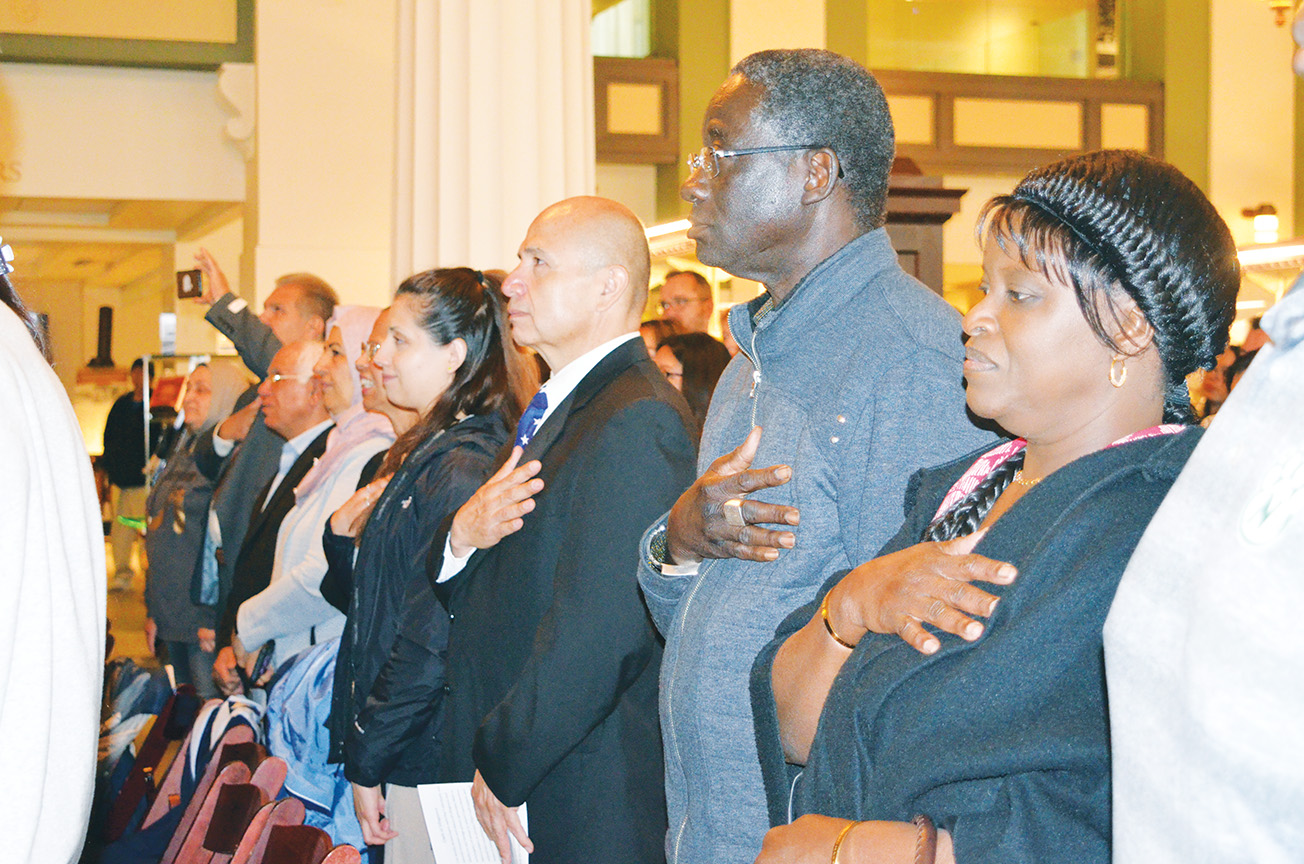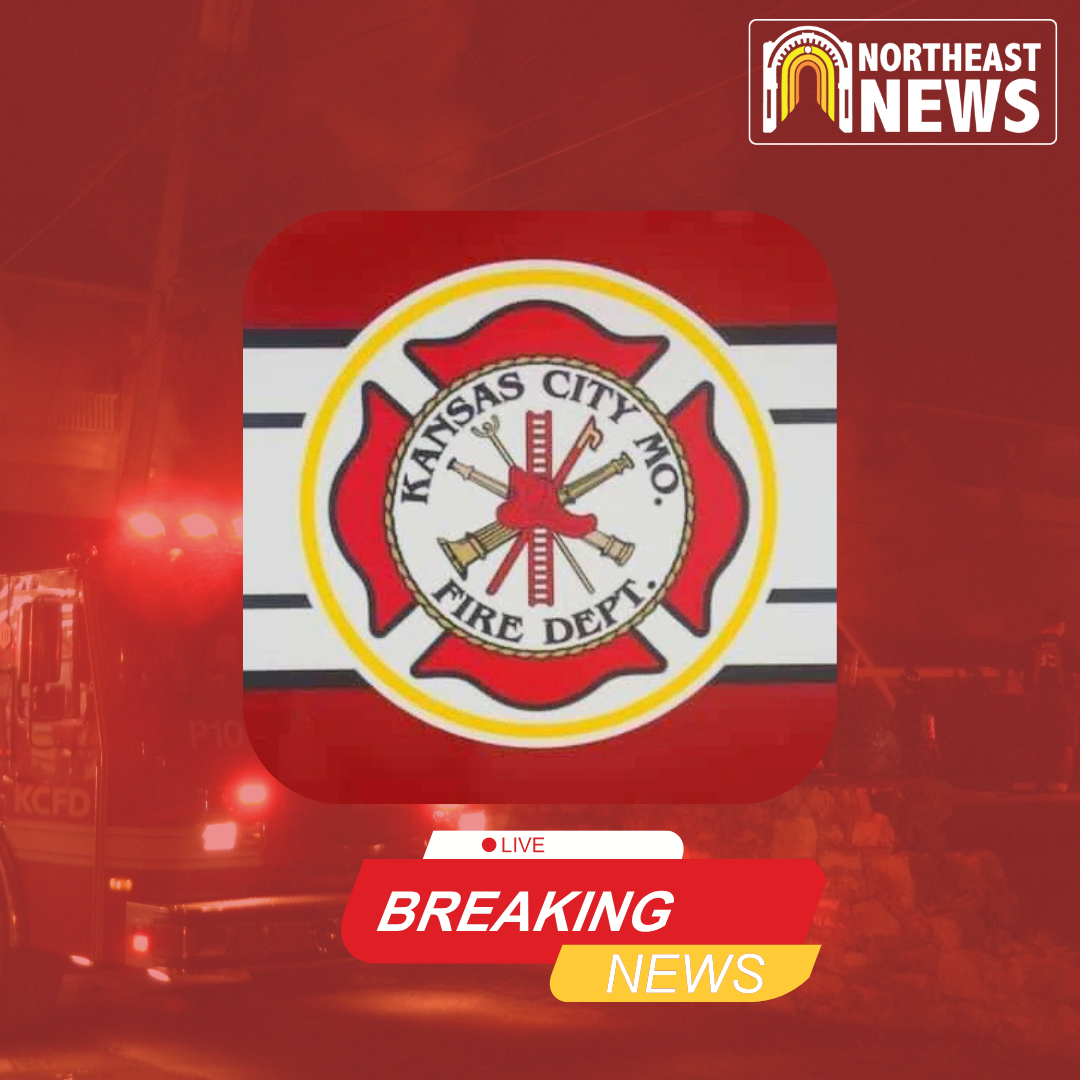Elizabeth Orosco
Northeast News
Kansas City’s Public Library’s Kirk Hall was completely full Tuesday morning, May 21. Seventy-six individuals from forty foreign countries stood up, raised their right hand, and took an oath of allegiance to support the constitution and bear allegiance to the United States of America.
Applause, hugs, tears, and smiles erupted as The Honorable Brian T. Fenimore, judge of the Western District of Missouri, granted all applicants citizenship in the United States.
The process up to this moment had been a grueling one for these individuals, who must pass numerous tests and pay hefty fees and fines to earn citizenship.
The pathway to U.S. citizenship takes several years. According to the United States Citizenship and Immigration Services (USCIS), applicants must be a lawfully admitted permanent resident for at least five years and at least 18 years old at the time of filing. Applicants must also have demonstrated continuous permanent residence, physical presence and good moral character.
The application fee alone is $725, with a majority of applicants spending an additional $5,000 to $10,000 in legal fees.
Those seeking citizenship are also required to take a Naturalization Test, made up of four parts. The civics test (one part) consists of 100 questions including information on American government, American democracy, systems of government, geography, symbols, holidays, American rights, the Colonial period, and recent American history. The applicant is asked 10 of the 100 questions and must answer six correctly to pass.
The English portion consists of three parts: an oral test, reading test, and writing test. An applicant’s ability to speak English is determined by a USCIS officer as they are asked questions from their application (N-400) and personal background to ensure nothing has changed.
Applicants are then given three sentences for the reading portion and asked to read them out loud. They must read one out of three correctly to pass. The sentences focus on civics and American history topics.
Lastly, the writing portion that is administered includes three sentences delivered out loud by a USCIS officer. Applicants must write one out of three sentences correctly to pass.
If an applicant does not pass, they are offered one more chance. If they do not pass the second time, they must begin the entire process over, starting with the application fee.
Victor Gonzalez of Mexico City, Mexico, is one individual who received citizenship Tuesday. He has lived in the United States since 1991 and said the ceremony was beautiful and emotional.
“I’m very happy with myself and for my family,” he said. “It was a great experience. With the help of my lawyer, he helped me and made the process easy overall. I think it’s important because you get the opportunity to vote, and to me that was the most important thing.”
Rob Cordero of Venezuela has been in the United States for nine years and also received citizenship.
“It was a very nice experience having the opportunity and privilege to become a U.S. citizen,” he said. “I’m very thankful to the country and people. It’s definitely a very exciting moment.”
Destiny Ojigoh of Toronto, Canada, said she is the last one in her family to earn citizenship.
“We had to wait until I was 18 to get it started, but my whole family got their citizenship about two years ago. They all did it together. They were just waiting on me.”
Overall, she said she’s glad it’s over with.
“It was a very long process, I’m thankful it’s finally done. I’m thankful that my family was there to support me through it all.”
With the intricate application and tests, the Kansas City Public Library offers individuals seeking citizenship resources to navigate this process more effectively and easily.
RISE, Refugee and Immigrant Services and Empowerment aims to connect immigrant populations with quality services, resources, and lifelong learning opportunities of the Library through outreach, education, and advocacy.
Beccah Rendall, RISE program specialist, said the library offers one-on-one English language learning opportunities where individuals can meet up with a community member to practice English.
They also offer English for citizenship classes to prepare individuals specifically for the Naturalization Test.
“At the library, our goal is to never have someone need to go through that again, which is why we offer citizenship programs here,” she said.
Personally, Rendall said she is proud to be working with refugees and immigrants at the library.
“I fundamentally believe that refugees and immigrants make Kansas City a very strong community, and it makes us better—it just does. We have been fortunate at the library to have volunteers who really care about welcoming immigrants and refugees to Kansas City and building those relationships. We are really proud to be a part of building that community because what we are working for is a vision where we see everybody as our neighbors.”
Despite Rendall being part of the teaching and assisting the applicants in their learning process, she said she has learned just as much from the individuals participating in the RISE classes and services.
“Their resilience, their ability to adapt and adjust, is amazing. If you have never lived in another country where people do not always look like you or sound like you, it’s really hard to understand what that experience can be like and how scary it can be. They keep showing up, they keep working hard, and it’s really such a great asset for Kansas City to have the refugee and immigrant community that we do.”
To learn more about RISE resources and classes at the Kansas City Public Library, visit kclibrary.org/community-services and click on “RISE services” or call 816.701.3400.

















